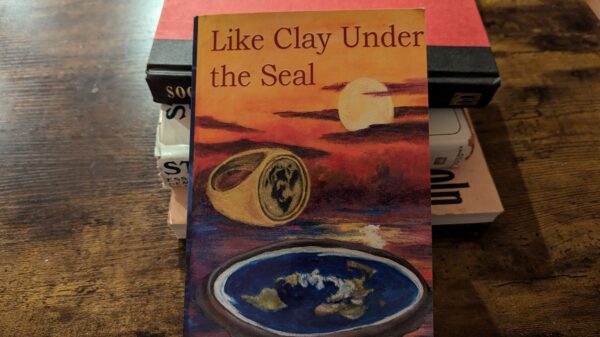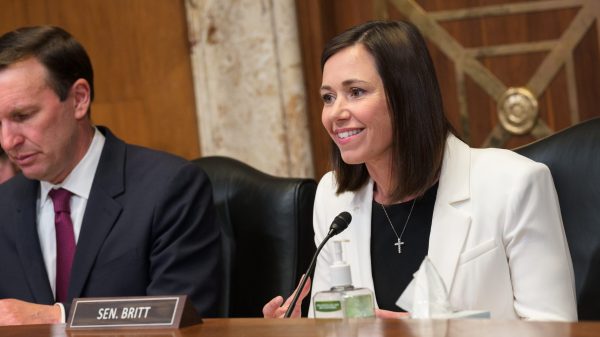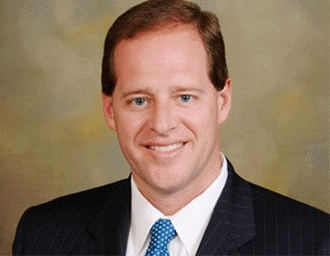By Bill Britt
Alabama Political Reporter
In what should have been a routine change to clarify an existing statute a vicious battle has erupted where a state agency and some of its employees may have misused their office and broken standard employee protocol.
A war of words and ideologies has emerged between two groups that on the surface would seem to share the same goals.
In the upcoming legislative session, Sen. Cam Ward, (R-Alabaster), is scheduled to introduce SB 81 a bill that will amend the Alabama Underwater Cultural Resources Act, a law that among other things requires underwater explorers to get a permit from the Alabama Historical Commission before going after submerged wrecks and relics.
According to Ward and the bill’s advocates, the amendment is designed to simply clarify for law-enforcement some ambiguities within the statue.
“The problem is that the current law is confusing to local law enforcement officers who have been misled by some bureaucrats and told that divers or prospectors could not dive and find items that are not cultural resources,” said Steve Phillips. Alabama native Phillips has a long career as a professional diver, world-class collector and nationally recognized author on recovery of historical relics.
Phillips has been an open proponent of changes in the law having been the only person ever tried (but not convicted) under the act.
Representative Dr. Jim McClendon (R-Springville) is carrying a mirroring bill the state house of representatives. McClendon, was the sponsor of HB 104, a similar bill in the last general session.
SB 81 seeks to define more clearly what is a “cultural resource” which under current law can be broadly interpreted.
The entire battle has ensued over a three-word change in defining a “cultural resource,” in the section of the bill below (the three words to be taken out are in bold and italic).
“CULTURAL RESOURCES. All abandoned shipwrecks or remains of those ships and all underwater archaeological treasures, artifacts, treasure troves, or other cultural articles and materials, whether or not associated with any shipwreck, that are contained in or on submerged lands belonging to the State of Alabama…”
Under the existing statue, for example, if a family was fishing along the Coosa River and one of the children while attempting to land a fish in his net happened to scoop up a civil war mini-ball, that ball would belong to the state. The child could also be charged with a crime for disturbing the artifact. While this may seem absurd, the current law can be interpreted that narrowly.
Ward and McClendon, with the help and advice of Phillips and others, are seeking to clear up any misunderstanding that might arise from the language in the law as it now reads.
The real difficulty, it seems, has come from the fulminations by the conservationist community but more troubling still for lawmakers is the interjection of state employees lobbying against SB 81 on state time, using their state offices and state equipment.
The news of SB 81 caused state employee and State Archaeologist Stacye Hathorn to send out the email below on state time, using state equipment and signing with her state title.
“It’s like de-ja-vu all over again … Senator Ward is introducing another bill which would compromise the Underwater Cultural Resource Act. Please see attached.
“Please disperse the news and prepare for another educational effort in the legislature. The next legislative session begins in early February.
“Thank you for your time and support, Stacye”
Stacye Hathorn
State Archaeologist
Alabama Historical Commission
468 South Perry Street
Montgomery, AL 36130-0900
This email by Hathorn and other activities within the AHC prompted a swift response from Rep. McClendon who heads the powerful ethics committee.
“Senator Ward and others; (I hope someone will forward this to Mr. White [Executive Director] of the Historical Commission – I do not have his email.)
“It is the responsibility of the legislature to carry out the will of the citizens of Alabama, and it is the job (sole job, I might add) to execute the direction the legislature indicates. To have employees of a state agency intervening and interfering with the legislative process is a serious charge. It is obvious that in this case they are not concerned about the responsibility the legislature – the preservation they are concerned with is a job.
“If I receive any evidence that a state agency employee is using state time and state equipment to interfere with the legislative process, rest assured action will be taken. That time and equipment is provided to carry out the will of the body that created the agency.
“Agencies, such as the Historical Commission, were created by the legislature to carry out the responsibility and job the legislature mandates. Agency heads opinions are always welcomed, but participation of employees in the law making process, particularly to protect their own job, is a conflict and contrary to the process.
“In case there are any questions about the Legislature’s authority, I refer you to the budgeting process, and Sunset review. One can cut off the funding, the other can terminate the agency, and both operate at the sole discretion of the legislature.”
Jim McClendon, O.D.
State Representative
Alabama Legislature”
Serious questions surround these actions and it is to be seen how deep the commission and its employees are overtly and covertly involved in thwarting the people’s business. Under the new rules and added teeth now available to the state’s ethics committee it should come as no surprise that conservatives will not sit idly by and watch as employees abuse their responsibility and position.
Sen. Ward is also expressing his displeasure with the interference of the Historical Commission and it employees saying, “It seems to me that the Historical Commission has decided that it is the only one who should determine who can do what in Alabama waterways,” said Ward. “They are acting like it is their personal property and that they should be able to say who can touch it.”
Ward says he believes the commission had stepped way beyond the bounds of their charter into a very dangerous area of seeking absolute control even over the constitutional mandates of the legislature.
“I am sure there was never an intent to allow a government agency to have an absolute dictatorship over the historical artifacts of our state. I find it hard to believe that the people of our state would want that to be the roll of the government,” said Ward.
In fact, covert urging by the commission has led to other historical entities to spread false propaganda concerning the bill.
The Alabama Trust for Historic Preservation on its website has posted the following:
“Alabama Senate Bill 81 alters the current Alabama Underwater Cultural Resources Act by changing the definition of “cultural resources” to only items related to shipwrecks. The bill removes protection from all other sites in Alabama waters, including Native American sites, human burials, forts, historic sites, and others. If it isn’t a shipwreck, it isn’t protected under the proposed law.”
“They are saying that this is going to allow scavengers to dig up Native-American burial sites and loot shipwrecks and specifically the bill does not allow that,” said Ward. “If you read the bill you will see that some of the hysteria that they are pushing out there is absolutely not true.”
In fact, even a cursory reading of the bill reveals that such acts as described by The Alabama Trust for Historic Preservation are expressly forbidden in the plainest of language.
The mendacity has spread to the highest levels of state archeology and academia. Teresa Paglione, president of the Alabama Archaeological Society, has said, “[The changes to the law] would allow divers like Mr. Phillips to conduct little more than scavenger hunts for relics—like a game of finders-keepers, except individuals get to keep what belongs to the state of Alabama and its citizenry.” Paglione who teaches at Auburn University has set out on an email campaign to discredit and challenge Steve Phillips as well as Sen. Ward.
If SB 81 still offers the protection for cultural artifact while offering clarification for its enforcement, why so much consternation from the Historical Commission and archaeologist?
“On the merits of the bill the Historical Commission is taking a dictatorial view that they alone should determine what should be determined as historical and who should touch it and who should even look at it,” said Ward. “This is little more that a turf war.”
In an email that was acquired by APR, Teresa Paglione, president of the Alabama Archaeological Society, wrote to Sen. Ward and copied to others:
“The AHC staff has endured repeated budget cuts and been severely over-worked due to down-sizing over the last +5 years, but they are not the the lead force lobbying to fight SB 81. Believe me, they don’t have to voice their opinion to us – we in the historic preservation community (archaeologists, historians and preservationists) and members of the general public can make up our own minds regarding the way this bill proposes to re-define ‘cultural resources’ and thus allow the looting of sites and artifacts for private ownership or profit.”
Rep. McClendon who authored the bill that passed in the house during the last session has written, “Burial grounds and shipwrecks are protected in the bill. The bill specifically allows discovery and collection of isolated finds that are unrelated to ship wrecks. Read the bill!”
He has concluded that those who are opposing SB 81 are, “Conjuring up hidden agendas without factual basis adds nothing to the legislative process.” McClendon also said, “It is not an artifact until it is dug out of the mud.”
Steve Phillips who represents the feelings of a great number of divers and amateur history buffs has a more biting assessment.
In an email in response to one circulated by Paglione, Phillips wrote:
“Ms. Paglione. As usual, she is wrong about most things. SB-81 only takes out three words that are confusing to law enforcement officers. It does not remove any cultural resources from permitting by the state.”
Phillips goes further in the email to state that,
“Stacy Hathorn is the State Archaeologist for Alabama and she also is an assistant professor for Auburn University Archaeology Dept. She has loyalty to the cronies in archeology such as Ms. Paglione. She does not serve the public as she should.”
Phillips harsh assessment of Paglione and Hathron is met by Paglione calling Phillips little more a a grave robber, scavenger and profiteer.
Phillips is a plain-spoken man who has lived his life in the world of outdoorsmen and underwater explorers but he is also considered an authority on relics and diving with numerous books to his credit. He says that this is about academics protecting their small society without regard to what is best for the state of Alabama. Phillips said, “Alabama has 77,000 miles of waterways and over 100,000 divers. We don’t want to limit what the professional archaeologists can do if they are willing but they are not our bosses and should quit thinking that the public serves them.” He concludes by writing, “We are not special, we are just like most public-minded people who believe in INDIVIDUAL RIGHTS and access to our public lands.”
McClendon has written:
“Archeologists do not have a monopoly on academic knowledge or a monopoly on academic experience. To infer that only archeologists are qualified to evaluate and restore an artifact is ludicrous, and blatantly self-serving,” adding to the point he wrote, “If these folks were truly concerned about preservation of our history, they would welcome help. How many of these folks criticizing this bill are willing to dive in zero visibility?”
This war of words appears to pit the protected turf of academics and the bureaucracy against the legislative process and the rights of Alabamians. According to the bill’s authors, an honest reading of the bill will discredit the invective of the opposition.
Ward and McClendon remain committed to see the needed amendment made to The Alabama Underwater Cultural Resources Act.
There are remaining concerns on what action might need to be taken due to the interference of state employees and the Historical Commission into the legislative process.















































